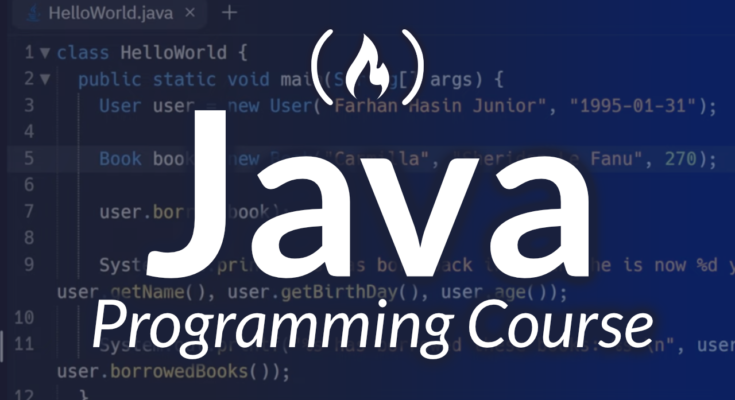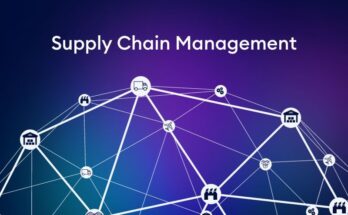Welcome to the “Beginners Java Course: Introduction to Java Programming.” This course is designed to take you on a journey through the world of Java, a versatile and widely used programming language. You’ll start from the basics, understanding the core concepts and gradually move towards more complex topics. By the end of this course, you’ll have a solid foundation in Java programming and be ready to tackle real-world projects.
“In learning to program, one learns to bring something out of nothing. In that creation, a world of complexity and beauty is born.”
This quote encapsulates the journey of learning Java programming, where you start with simple concepts and gradually build up to creating complex applications that can solve real-world problems.
What is Java?
Understanding Java in the World of Programming
Java is a high-level, class-based, object-oriented programming language that is designed to have as few implementation dependencies as possible. It is a general-purpose programming language that is specifically designed to let application developers write once, run anywhere (WORA), meaning that compiled Java code can run on all platforms that support Java without the need for recompilation.
The Java Platform: JDK, JRE, and JVM Explained
The Java Development Kit (JDK) is a software development environment used for developing Java applications and applets. It includes the Java Runtime Environment (JRE), an interpreter/loader (Java), a compiler (javac), an archiver (jar), a documentation generator (Javadoc), and other tools needed in Java development.
The JRE is a package of software that allows Java programs to run on a device. The Java Virtual Machine (JVM) is the component of the JRE that executes Java applications.
Setting Up Your Java Development Environment
Setting up your Java development environment is the first step toward becoming a Java developer. This section will guide you through installing the JDK on various operating systems, configuring your development environment, and ensuring everything is ready for you to start writing Java code.
Writing Your First Java Program: Hello World!
Your first step into the world of Java programming will be writing the classic “Hello, World!” program. This simple program is traditionally used as an introductory exercise in programming. It will introduce you to the structure of a Java program, compiling and running your first Java application.
Object-Oriented Programming in Java
Introduction to Object-Oriented Programming Concepts
Object-oriented programming (OOP) is a programming paradigm based on the concept of “objects”, which can contain data and code: data in the form of fields (often known as attributes), and code, in the form of procedures (often known as methods). Java is inherently object-oriented, and understanding OOP concepts is crucial to becoming proficient in Java.
Classes and Objects: The Fundamentals
In this section, we delve into the heart of Java programming: classes and objects. A class is a blueprint from which individual objects are created. You will learn how to define classes, create objects from these classes, and understand how objects can be used to model real-world entities.
Methods: Defining Behavior in Java
Methods in Java are blocks of code that perform specific tasks. You will learn how to define methods within classes, how to pass information to methods, and how methods can return information. Methods are essential for breaking down complex problems into smaller, manageable tasks.
Read Also: JAVA – From Zero to Hero: Complete Java Course For Beginners
Conclusion:
As we conclude the “Beginners Java Course: Introduction to Java Programming,” it’s important to reflect on the journey we’ve embarked upon. Starting from the very basics of understanding what Java is, to setting up your development environment, and progressively moving through fundamental programming concepts, object-oriented principles, data structures, exception handling, file operations, and even touching upon GUI development, you have laid a solid foundation for your programming skills in Java.
Throughout this course, you have been introduced to the core aspects of Java programming that are essential for any aspiring developer. By working through practical exercises and projects, you have not only learned theoretical concepts but have also applied your knowledge in a hands-on manner, which is crucial for deep understanding and skill retention.
FAQ
Q: Do I need any prior programming experience to start this course?
A: No, this course is designed for beginners with no prior programming experience. We start with the basics and gradually build up to more complex topics.
Q: How long will it take to complete this course?
A: The duration of the course depends on your pace and dedication. Typically, it might take anywhere from a few weeks to a couple of months to complete.
Q: What tools do I need to start this course?
A: You will need a computer with internet access to download the JDK and a text editor or an Integrated Development Environment (IDE) like Eclipse or IntelliJ IDEA for writing your Java programs.
Q: Can I get a job after completing this course?
A: Completing this course will give you a solid foundation in Java programming, which is a valuable skill in the job market. While this course is a great starting point, becoming proficient enough for a programming job will require further study and practice.
Q: How can I get help if I get stuck?
A: There are many resources available for learning Java, including online forums, Q&A websites like Stack Overflow, and Java communities on social media platforms. Don’t hesitate to seek help when you need it.




